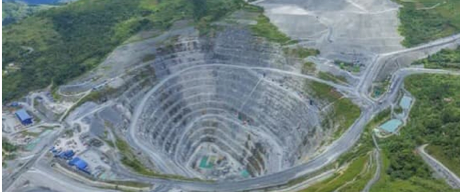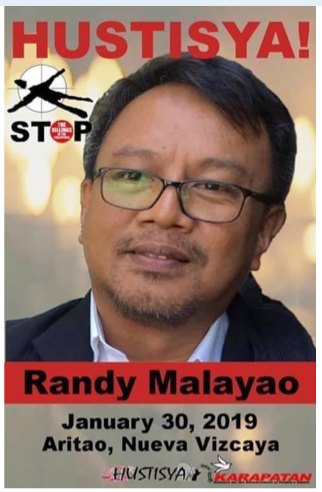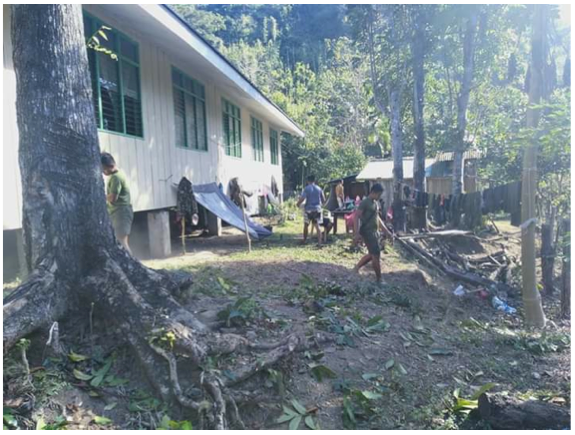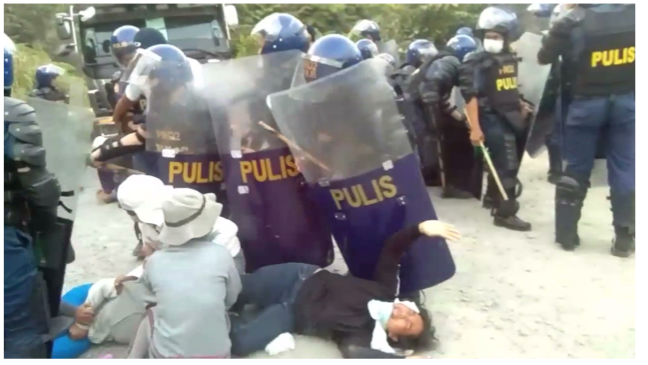Indigenous Peoples (IP) in Cagayan Valley: Their Struggles and Continuing Challenges

Speech delivered at the Forum of Philippine Caucus for Peace 18th October 2020, Melbourne, Australia
By Mafel Macalanda, Regional Coordinator, Cagayan Valley Indigenous Peoples Alliance
Region 2, or popularly known as Cagayan Valley, has eight major IP groups found in its five provinces. The Isinay and Gaddang of Nueva Vizcaya, the Calinga, Aeta, and Agta- Dumagat of Isabela, the Aggay, Agta, Aeta and Malaueg of Cagayan and the Ivatan of Batanes. There are also two major ethnolinguistic groups who were able to retain their local dialect despite colonization, the Ibanag and the Ytawes. These two comprise a big number of IP in the region. A big number of Igorots from the Cordillera also migrated to the different provinces of Cagayan Valley in search for better livelihood, especially lands to till.
Just like most IPs worldwide, the IPs in the valley are not provided with basic social services, such as health, education, and shelter. As a result, they have a low literacy rate. Majority of them cannot read and write. Due to the low level of literacy, they are easily manipulated by the government, the agencies, and the companies to agree on projects introduced in their territories. Thus, they suffered various forms of violations. Many of them became transients on their own lands due to the various projects in their areas, such as mining. Major ones include the Australia-Canadian mining company OceanaGold in Didipio, Nueva Vizcaya, the Nickel Asia in Dinapigue, Isabela and the black sand mining in Aparri.
Mining operations also claimed lands occupied by the Agta, Aggay and Igorot for this project. Aside from the dislocation of the IP groups, this program became a source of corruption among the local officials.
The IPs are likewise affected by development projects, such as the National Greening Program (NGP) under the Department of Environment and Natural Resources (DENR), tourism-related projects such as the Ilagan-Divilacan Road, the grandiose plan of the Cagayan Economic Zone Authority (CEZA) to construct a techno hub in Sta Ana, Cagayan. The latter aims to become the biggest techno hub in Asia, and it is in its construction phase, widening road and constructing hotels and leisure houses near the Airport in Lallo, Cagayan.
The IPs and advocates expressed their concerns on the destruction and loss of their lands, the environment and the ill-effects of these developmental projects. However, they are dealt with militaristic responses. In 2018 and 2019, under the administration of President Duterte, two IPs were killed, including Peace Consultant Randy Malayao, an Ibanag who also reactivated Punganay – the IP Alliance in the region.

Illegal arrests and trumped-up charges filed against leaders and members of progressive organizations are common in the region. Among them include six individuals of the Ifugao IP group, including Vicente Olagon, a member of an environmental organization opposing the mining operation in Kasibu, and Mr. Pulido, who joined the people’s barricade against OceanaGold. Worst is the planting of evidence against individuals like Mr. Olagon, who is still in prison due to the illegal possession of explosives case filed against him, a non-bailable offense.
Militarization and military encampment in IP communities are also a big challenge to the IPs in the region. Community residents are forced to surrender as they are accused of being supporters or members of the New People’s Army. Red tagging, intimidation and harassment are also sustained against those who are expressing their democratic and legitimate demands, including the IPs. Flyers and sacks bearing names of organizations and individuals were scattered all over the provinces of the region, except Batanes. Text barrage vilifying these organizations and individuals also circulated in 2018 to 2019. In May 2020, during the height of this pandemic, the red-tagging materials developed to flyers and tarpaulins with our pictures and names scattered all over Cagayan Valley – along the major highways, in malls, in waiting sheds, even in our office’s compound. We also observed regular surveillance against leaders in their homes and in the communities.

Because of the heightened red-tagging against our organizations and members, we were even prevented from delivering cash assistance to COVID-19-related responses to the
Kalinga and Agta. According to the barangay captain, members of the PNP intelligence unit claimed that we are fronts of the CPP-NPA and that we are only using the IPs to get more funds for the CPP-NPA.
Meanwhile in Didipio, despite the expiration of OceanaGold’s mining permit since June 2019, it still continues to operate. With this, the people of Didipio, set up a people’s barricade to prevent the entry of fuel and other equipment in the mining site. However, in April 6, 2020 (during the COVID-19 lockdown), OceanaGold obtained a permit from the MGB office approved by the DILG National Office for the entry of their fuel to the mining site. The anti-mining people of Didipio blocked the entry of oil tankers. However, the notorious OceanaGold asked the assistance of the provincial PNP for the entry of their fuel. Thus, around 100 PNP officers violently dispersed the people’s barricade and even arrested Mr. Pulido, the chairperson Didipio Earth Savers Multi-Purpose Association (DESAMA). The next day, he was released on bail but he still faced the charges filed against him – violation of the guidelines of COVID-19 (RA 11332) and the Resistance and Disobedience to a Person in Authority or the Agents.
The same case was also filed against 15 other residents who joined the people’s barricade. Majority are indigenous women. After these incidents and the relentless struggles of the anti-mining residents of Didipio, PNP and military forces from the 86th Infantry Battalion were deployed in the community and the nearby barangays using the pandemic as an excuse for their anti-insurgency campaign.

The military from the 86th IB went to the houses of those who led the people’s barricade. They asked the leaders regarding their involvement with other organizations at the national, regional and provincial level and asked questions about some personalities of progressive organizations. The military also ordered them to dismantle the people’s barricade and to stop their involvement with the national, regional and provincial progressive organizations because these are fronts of the terrorist CPP-NPA. The leaders, on the other hand, defended these organizations because in the first place, these progressive organizations are the ones helping the community in defending their lands and rights against the notorious OceanaGold mining company since their struggle started.
While we are concerned about our life and security, we still continue to persevere with our work in defending the democratic rights of our fellow IPs and the other democratic sectors of the region and the country. We continue to express our concerns to various agencies and the wider public, submit petitions and complaints, and most importantly, we continue to strengthen our collective actions in advancing our democratic rights.
We appeal to the wider public to be with us in our campaign and advocacy in defending the indigenous peoples’ rights to their lands, life and natural resources and in our call to stop militarization in the communities. We call on the government to instead provide economic relief and social services to the IPs, especially in this trying times of the COVID-19 pandemic.
Leave a Reply